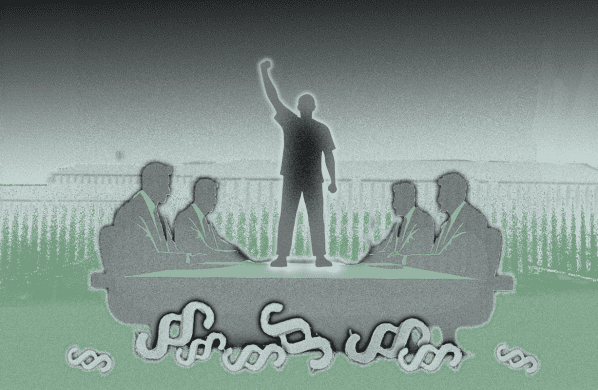Uddrag af omtalen af programsamarbejdslandet Mozambique i det amerikanske udenrigsministeriums årsrapport for 2004 om menneskerettighedernes stilling verden over
On November 19, 2003 Mozambique held its second municipal elections, which were generally free and fair and occurred without violence. FRELIMO dominated the November elections, winning 28 out of the countrys 33 municipalities.
Presidential elections are scheduled for 2004. The Governments human rights record remained poor; although there were some improvements in several areas, serious problems remained.
Police continued to commit numerous abuses, including unlawful killings, beatings in custody and arbitrary arrests and detentions. Prison conditions remained extremely harsh and life threatening. Despite efforts to clear long-standing case backlogs, prison overcrowding was widespread and lengthy pretrial detention was common.
The courts were dominated by the executive branch, lacked adequate resources and were chronically understaffed and largely ineffectual. Corruption continued to be a problem in the public and private sectors.
Domestic violence against women, as well as widespread discrimination against women in employment and property rights, remained significant problems. There were confirmed reports that women and children were trafficked to South Africa.
The U.S. human rights and democracy strategy in Mozambique strengthens key institutions, enhances civil society, addresses corruption at all levels and combats trafficking in persons. The Embassy has been actively engaged in increasing the professionalism of the police and reforming the judiciary.
In 2003, President Bush met with President Chissano on the margins of the UN General Assembly in New York, in Chissanos capacity both as President of Mozambique and African Union Chair. The Embassy also sent various community members and Mozambique government officials on International Visitor programs in 2003, including in the areas of democracy, civic education and HIV/AIDS awareness.
To foster a more professional police force and reduce human rights abuses among the police, the Embassy used funding for an intermittent long-term International Criminal Investigative Training Program advisor to assist Mozambiques Police Sciences Academy in management and curriculum development and to coordinate specialized training courses.
INL funds are also paying for improved facilities. INL funded key police officials and officials from the Attorney Generals office to participate in courses at the International Law Enforcement Academy (ILEA) in Roswell, New Mexico, and the regional ILEA academy in Botswana.
Recognizing that corruption is a principal impediment to Mozambiques economic development and democratic consolidation, the U.S. Agency for International Development (USAID) used Development Assistance (DA) and Economic Support Funds (ESF) to improve the countrys judicial system and more effectively address corruption.
USAID has actively supported the Anti-Corruption Unit (UAC), including paying rental of UACs office space and provision of equipment, computers and vehicles. INL funded three trips by U.S. Department of Justice Overseas Prosecutorial Development, Assistance and Training (OPDAT) short-term advisors to assist the UAC in developing skills and tracking cases.
An indirect result of U.S. assistance and attention to corruption was the passage by the National Assembly of the long-awaited Anti-Corruption Law, which aims to fight corruption in government offices, hospitals, schools and the police.
USAID continued to use DA funds to raise public awareness about corruption and citizens rights through assistance to a local NGO on a planned media campaign. This NGO is also working with the UAC to open reporting centers in all ten provincial capitals with toll-free hotlines for reporting corruption.
Especially relevant due to the 2003 municipal elections, U.S. efforts in promoting democracy continued to be quite strong. USAID has used DA and ESF funds to support both international and local NGOs. With the assistance of U.S. funding, an international organization provided observers, carried out a parallel vote tabulation in partnership with Mozambican NGOs and monitored the post-election process.
The group found that Mozambiques second municipal elections were well conducted and peaceful, with no major problems likely to affect the results. The Embassy used both Democracy and Human Rights Funds (DHRF) and USAID funds to support seminars for civil society on civic education.
Embassy officials actively participated with the UN Development Program and other diplomatic missions in the coordination of international observers for the November 19 municipal elections, and embassy staff served as observers in key municipalities during the elections.
The Embassy, through an inter-agency agreement with the U.S. Labor Department, is working to improve industrial relations in Mozambique. Activities have included training programs, covering mediation techniques as well as techniques for collaborative labor relations.
Mozambique is a country of origin for trafficked women and children, and there is growing attention among government and civil society to the problem.
U.S. officials are working with NGOs and government officials to develop more effective mechanisms to address trafficking and better coordinate existing efforts.
This year, several DHRF grants were awarded for activities that focus specifically on trafficking and womens issues, including training seminars for police and immigration officials.
Kilde: Det amerikanske udenrigsministerium















